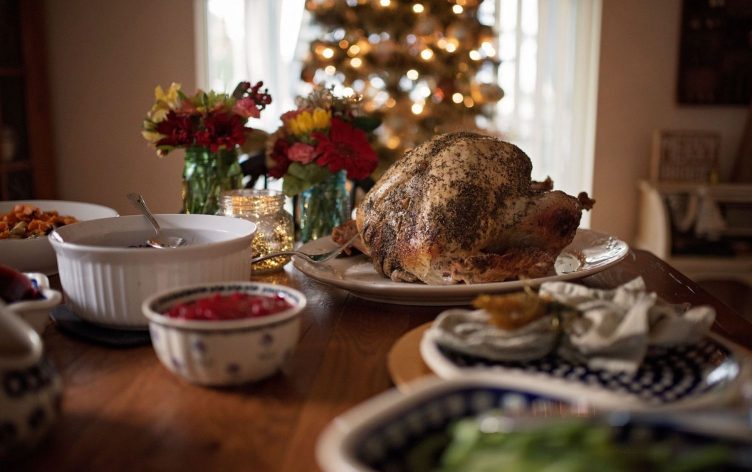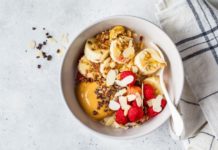
Dietitian Tips for Navigating the Holiday Table
Holidays can be challenging for many reasons — the stress, family dynamics, travel and even the food. Hear me out — holiday food is delicious and special. But, if I had a nickel for every client who came into our sessions with worries about how to eat during the holidays, I would have a lot of nickels. And that’s because, along with the cookie recipes, cocktail parties and family dinners, there’s diet culture messaging declaring you “bad” for enjoying holiday treats. Or, the only way to be “good” and stay on your diet is to restrict foods or exercise like crazy to “make up” for a holiday meal. I am here to say: enough of that. Here are my tips for how to enjoy holiday meals with as little nonsensical diet culture influence as possible.
EAT CONSISTENTLY
One of the most important things you can do for your body during the holidays (and all days) is to eat consistently. No more of that “I’ll just starve all day to ‘save up’ for a big dinner” nonsense. That is a recipe for disaster in which you overeat because you’re so hungry, feel extremely full, and then guilty and shameful for what you ate and how you feel. Providing your body with a consistent source of energy is crucial for keeping energy levels up and avoiding a blood sugar crash that can result in the worst holiday “hanger.” Make it a point to have breakfast every day, bring snacks if you’ll be out and about, and try not to go longer than 3–4 hours without eating anything.
HYDRATE
This one sounds simple, but drinking enough fluids (and no I do not mean cocktails) is often overlooked among busy and irregular schedules. Not drinking enough fluids can lead to constipation, bloating, fatigue and headaches. All of these can factor into food choices and make holiday meals more complicated. Try to aim for at least 2 liters of fluid per day (Think: water, tea, seltzer) to help keep your body hydrated and operating optimally. Carry around a reusable bottle if you’ll be on the go all day, or record cups or ounces consumed in an app to help keep you on track.
FOOD NEUTRALITY
Diet culture runs rampant during the holidays, with mixed messages like indulging in holiday foods, working them off with exercise, making “healthy” (but unsatisfying) swaps for favorite treats, and of course, the whole being “good” versus being “bad” with your food choices. It is exhausting. Quieting the diet culture noise this time of year is hard work, and one thing that can help is thinking about food neutrality. Or, putting all foods on a neutral playing field — kale and cake get the same score, and neither is “good” nor “bad.” Doing this can help take the power away from certain foods (e.g. holiday foods) that you may have previously restricted and then binged on or overate when you finally allowed yourself to have them. A food-neutral mindset can make getting to the holiday dinner table a lot less stressful and much more enjoyable.
FIBER, FAT AND PROTEIN
Eating regular meals is always important, and what’s in those meals also matters. There are certain nutrients that help make meals satisfying, satiating and provide you with more sustained energy. Fiber, fat and protein all work to slow digestion, which keeps you fuller for longer. Getting hungry shortly after a meal sort of defeats the purpose, and usually means one or more of these nutrients is missing. With meals, make sure there is always a good protein, fiber and fat source. A great breakfast example is Greek yogurt (protein) with walnuts (fat) and berries (fiber). Lunch could be a turkey (protein) sandwich on whole-wheat (fiber) with avocado (fat), tomato, spinach and cucumber (more fiber!). Dinner might look like a piece of salmon (protein and some fat!) with broccoli and potatoes (fiber) roasted with olive oil (fat).
THE BOTTOM LINE
Nourishing your body regularly should always be a priority, including during the holidays. Try to look at holiday meals as you would any other meal, and keep holiday foods on the same neutral playing field as you would others. If this is difficult, it can be helpful to shield yourself from harmful diet culture messaging by unfollowing, changing conversation topics, and unsubscribing. And, of course, seeking guidance from a non-diet registered dietitian is also a useful tool to ditch diet culture for good and cultivate a healthy relationship with food for the holidays and beyond.
































